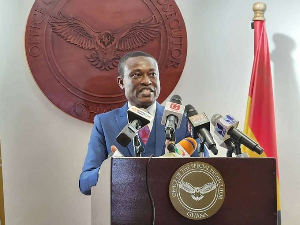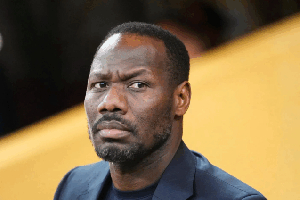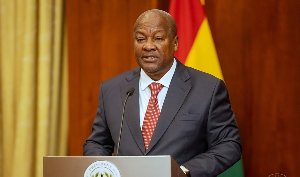Business News of Saturday, 23 March 2019
Source: ghananewsagency.org
Akufo-Addo is a transformational leader - Economist
Mr Habibu Adam, an Economist, on Friday said President Nana Addo Dankwa Akufo-Addo is a transformational leader who’s like is yet to be witnessed in the fourth republic.
“Right from Election 2016 campaigns to his inaugural speech on January 7, 2017 to the first budget of the new administration, the rhetoric of the President has sort to portray him as a transformational leader not seen in the Fourth Republic,” Mr Adam told the Ghana News Agency in an interview.
Mr Adam, who is also a Senior Economist at the Office of the Senior Minister, said this is based on the State of the Ghanaian economy and two years into Nana Akufo-Addo’s Government- “What are the real issues? And Why Ghanaians should be patient”.
He said the President came to meet challenges - coming at a time that the economy was experiencing low growth, rising rate of unemployment, high fiscal deficits, high and rising debt, and increased depreciation of the cedi, high cost of food, housing and utilities and high non-performing loans amongst others.
He said President Nana Akufo-Addo also inherited an economy with symptoms of deeper structural problems that required a wide range of reforms.
“As usual with the United Party (UP) tradition, the agenda was set right from the inaugural speech. However, many doubted the capability of the government in carrying out its ambitious plans considering the International Monetary Fund’s (IMF) programme and the declining growth of most of the sectors of the economy.
“It is important to note that virtually all the targets set under the IMF programme have been missed as at the end of December, 2016. For instance, a Gross Domestic Product (GDP) growth (including oil) of 3.6 per cent was the lowest in 23 years- a deficit target of 5.3 per cent under the IMF programme was missed.
“The actuals were 9 per cent on cash basis and 10.2 per cent on commitment basis,” Mr Adam said.
The Senior Economist said Ghana’s total public debt from independence to 2008 (52years) stood at GH¢ 9.5 billion (33 per cent of GDP).
However, by 2016, the public debt had ballooned to GH¢ 122 billion (73.1 per cent or the revised figure of 56.6 per cent of GDP). Interest payment was about GH¢ 14.1 billion 6.2 per cent of GDP.
Mr Adam said the difficulty faced by Nana Akufo-Addo’s government was that three budget items consisting of wages and salaries, interest payments and amortization and statutory payments consisted 105 per cent of government revenue.
“This means that government had additional 5 per cent to meet the three budgetary items,” he said.
He said the state of the Ghanaian economy was akin to the ‘HIPC’ economy the Former President John Agyekum Kufour’s government inherited in 2001 except that there was no HIPC benefits this time since Ghana is now a Middle-Income Economy.
“The only alternative left for the Nana Akufo-Addo’s government was to borrow initially to stabilize the economy before pursuing its growth agenda.
“This is the most popular option among Keynesian Economists. Hence, the rise in public debt for the first two years of the current administration.
“The good news is that while in the past we could not relate the debts to projects or programmes in proportional terms, the current administration now provides the lists of all the borrowed funds to specific projects and programmes,” Mr Adam added.












